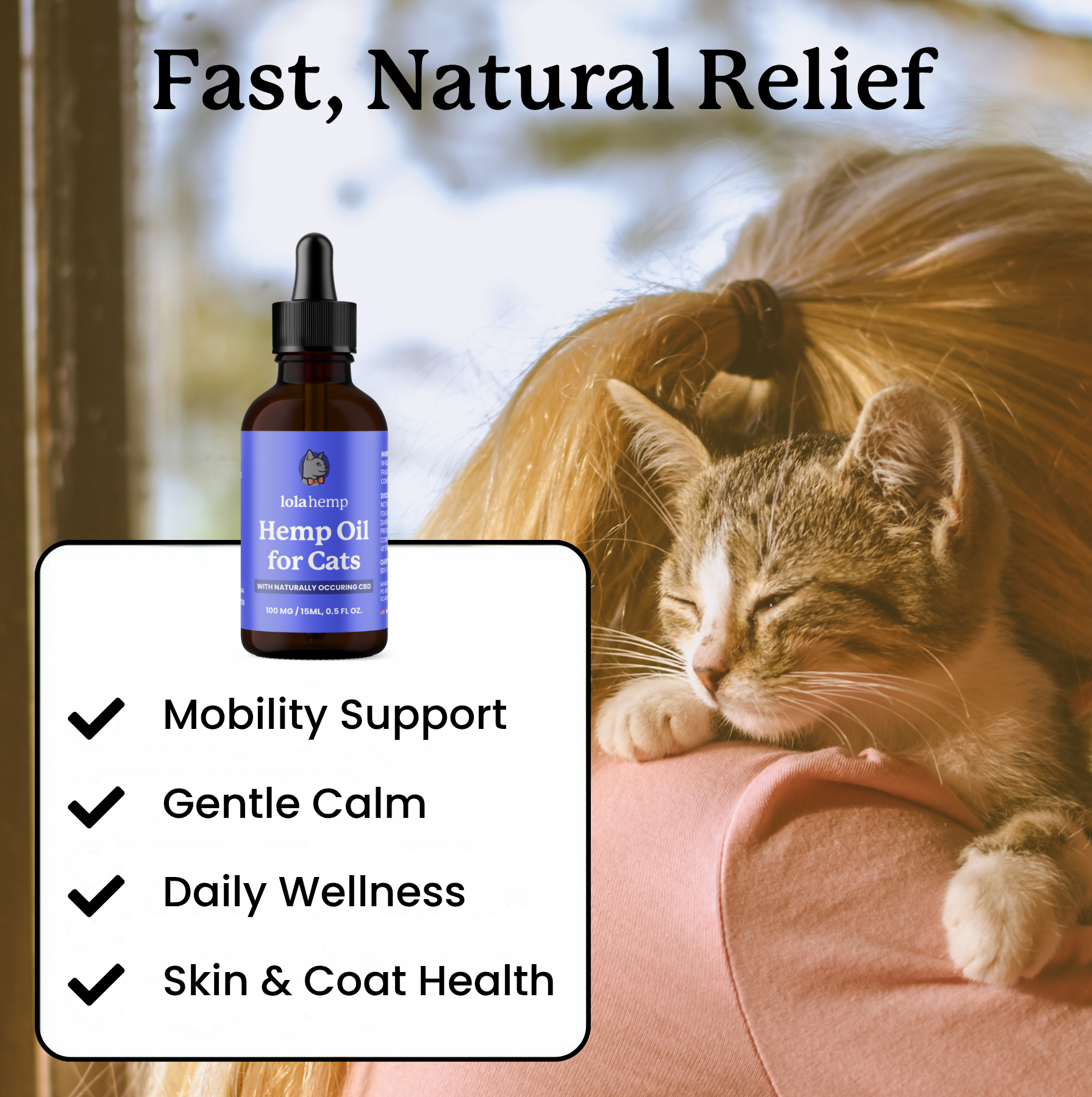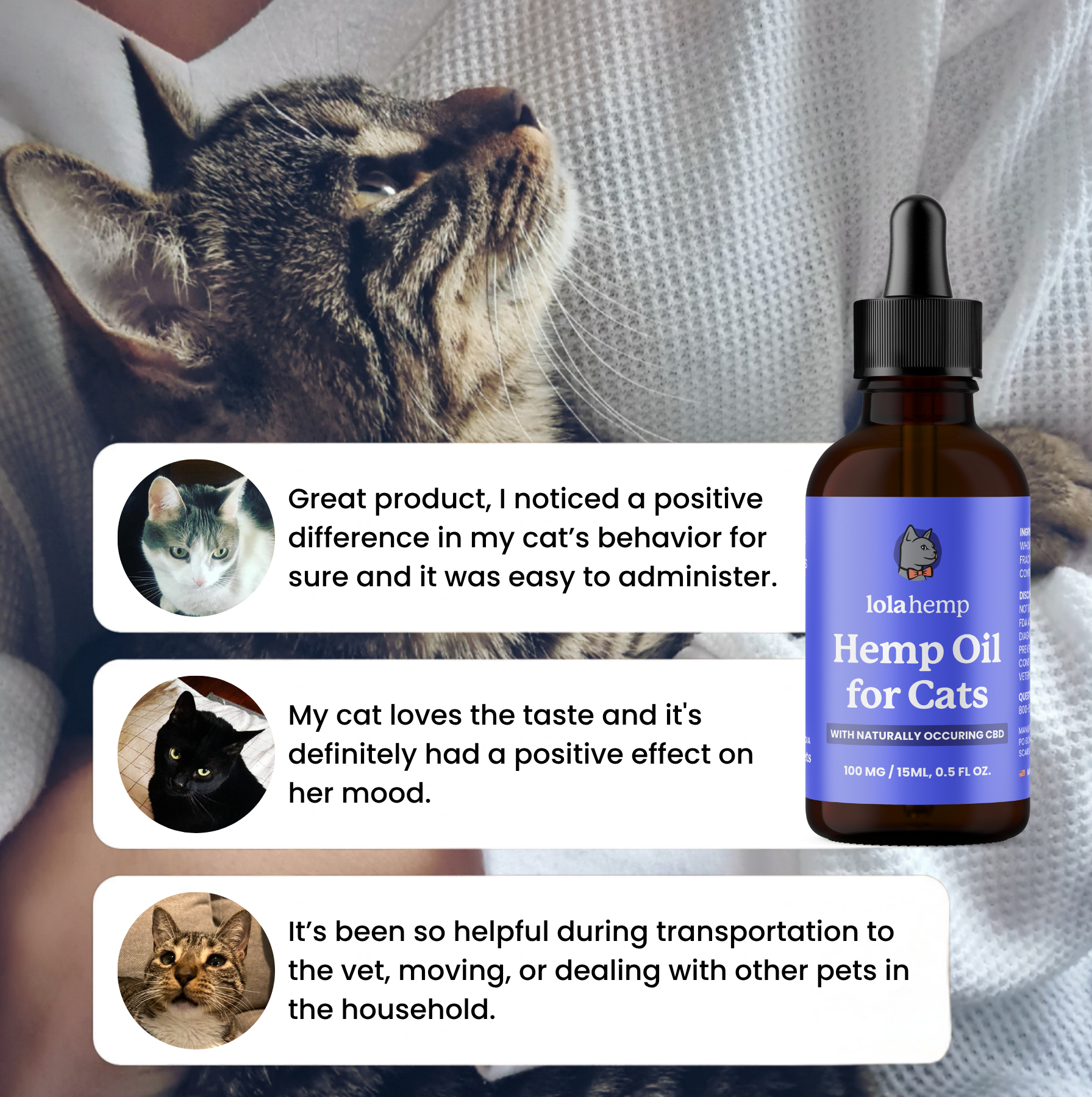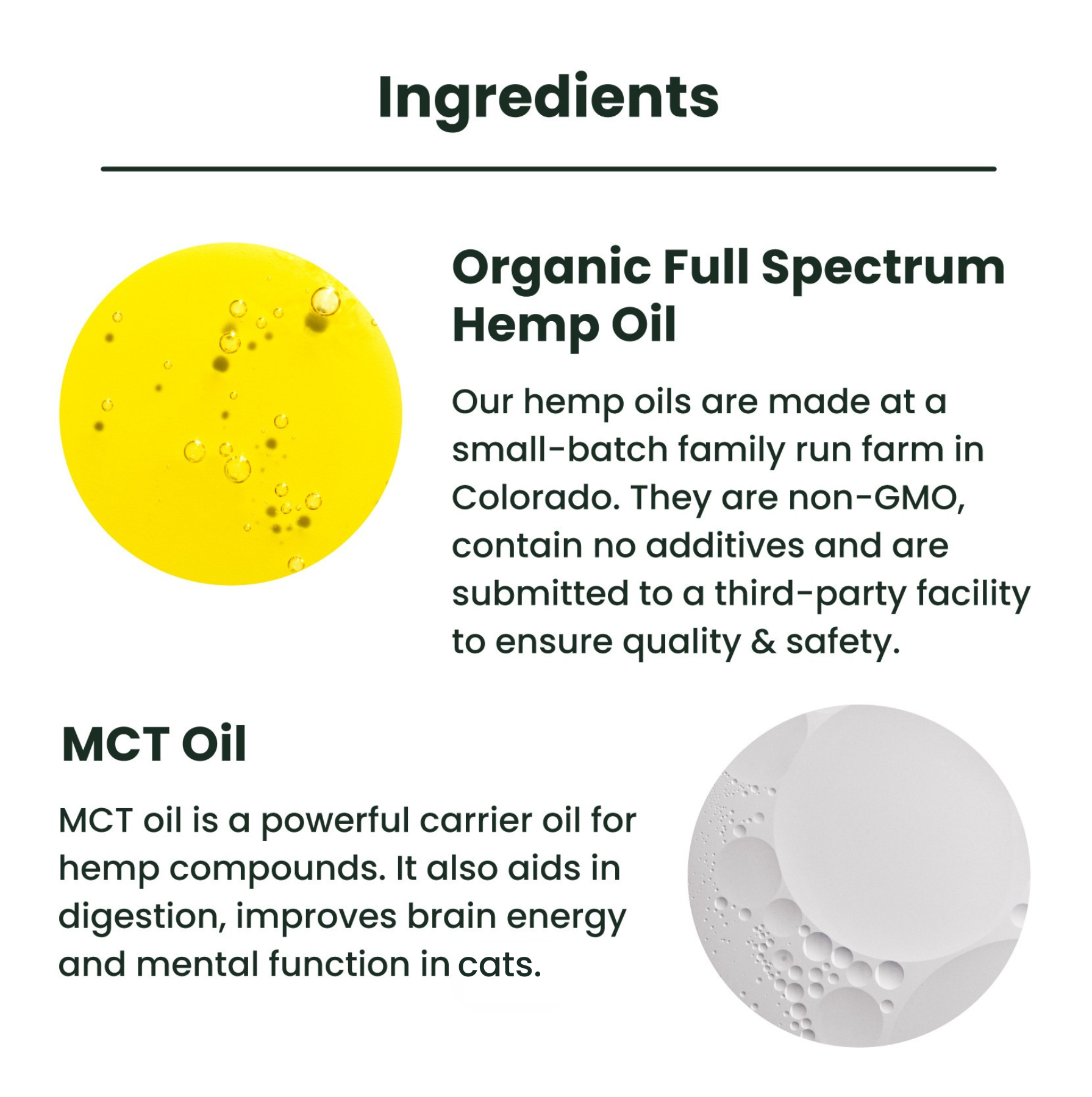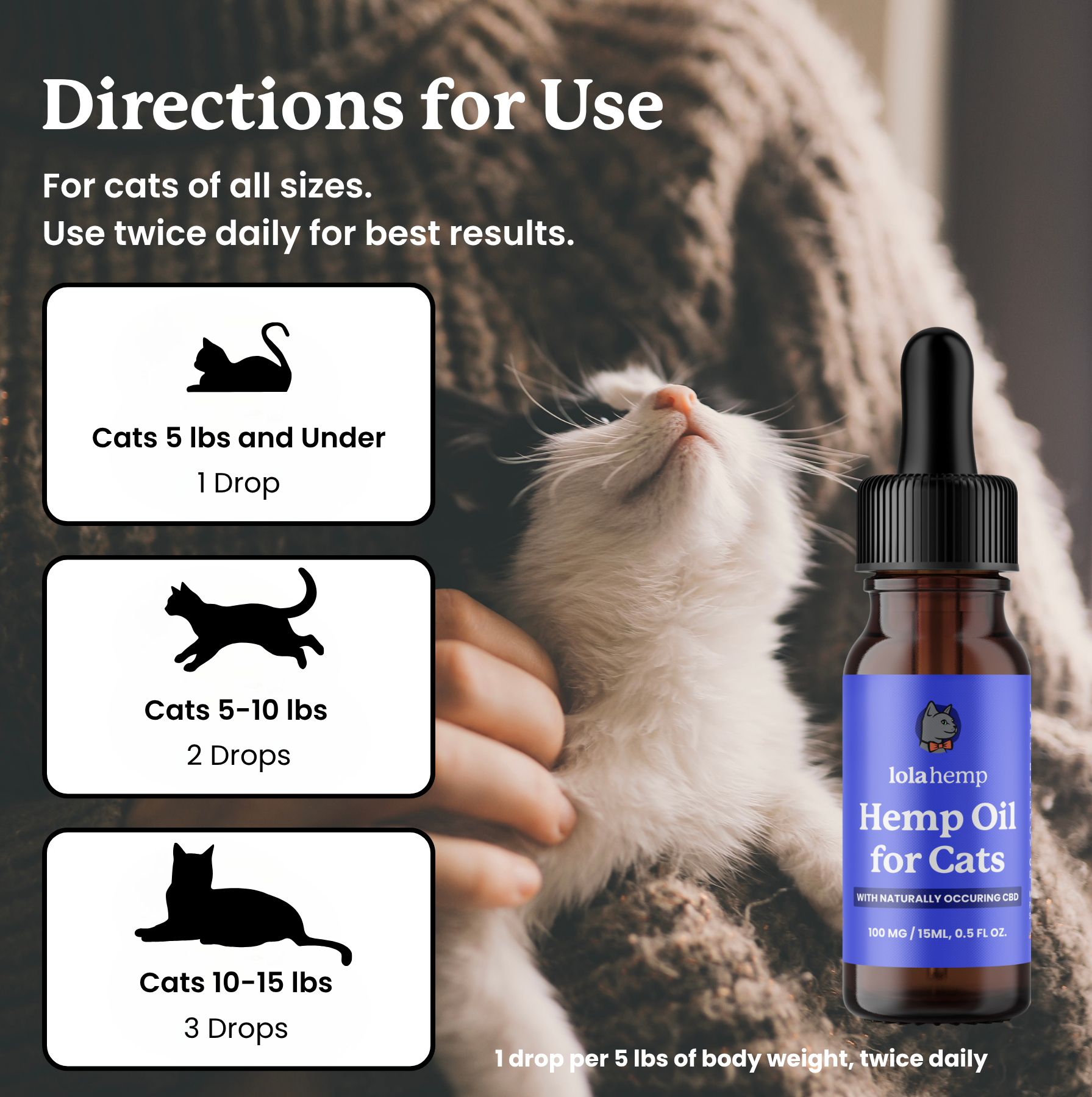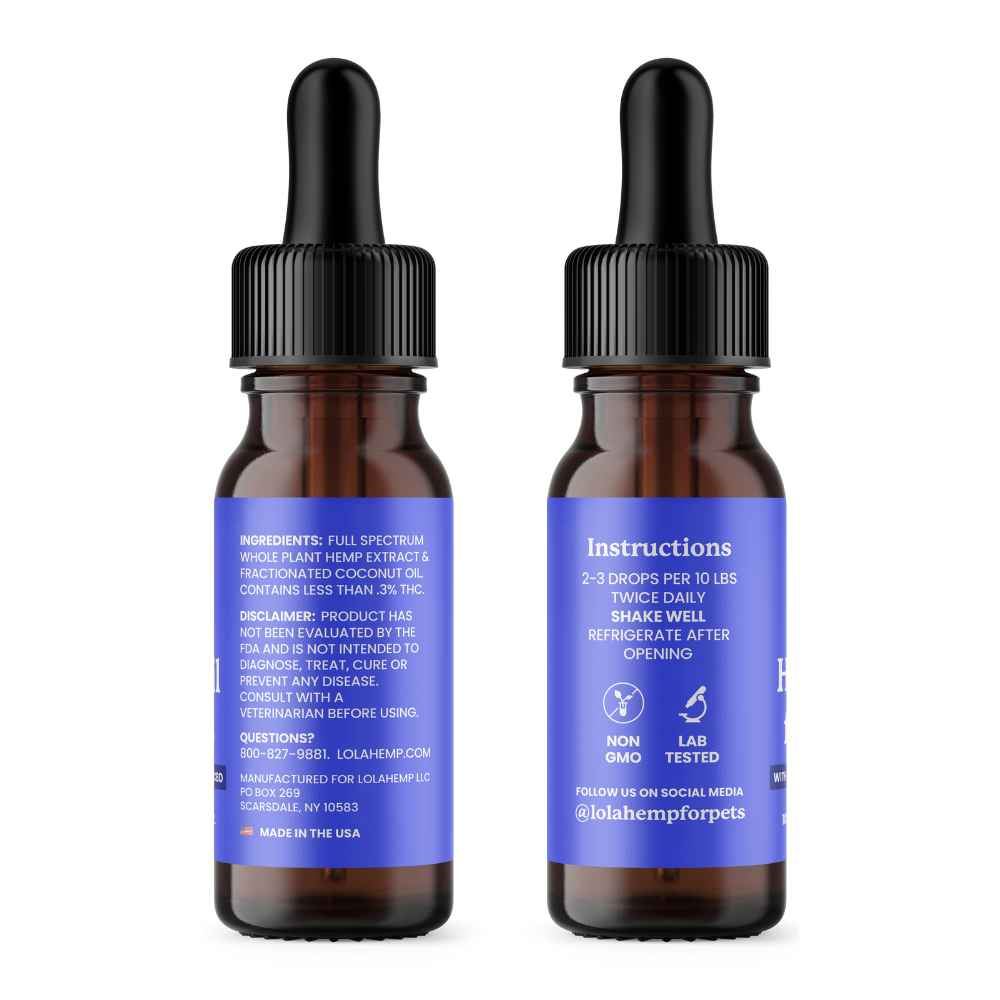If your cat seems restless, hides more than usual, or reacts anxiously to everyday situations, they may be struggling with anxiety. Just like humans, cats experience stress, and if left unmanaged, it can affect their overall well-being. Fortunately, there are natural ways to help them feel more at ease. By understanding the root causes of their anxiety and implementing effective calming strategies, you can create a secure, stress-free environment where your feline companion can thrive.
This article explores some of the causes and natural solutions to anxiety in cats, giving you a more holistic perspective on handling your cat's emotional wellbeing.
What Causes Anxiety in Cats?
Cats are creatures of habit, thriving on routine and familiarity. When their environment or daily life is disrupted, they can become anxious, displaying behaviors that may be concerning to their owners. You might notice your cat hiding more often, excessively grooming, or avoiding food. Others may become clingy, vocalizing more than usual, or even exhibiting destructive behavior like scratching furniture or urinating outside the litter box. These signs of distress can be frustrating, but they are your cat’s way of expressing discomfort and signaling that something is wrong.
One of the biggest triggers of anxiety in cats is change. Something as seemingly minor as moving furniture or adjusting their feeding schedule can be unsettling. More significant changes—like moving to a new home, introducing a new pet or baby, or being left alone for longer periods—can cause deep-rooted stress. Some cats may adapt quickly, but others, especially those with naturally anxious temperaments, may struggle for weeks or even months. It’s important to be patient and provide extra reassurance during transitions, as sudden shifts in their environment can make them feel vulnerable.
Health issues can also play a role in feline anxiety. Pain from conditions like arthritis, dental disease, or digestive problems can make a cat more irritable and prone to stress. Additionally, cats with sensory impairments—such as hearing or vision loss—may become anxious because their ability to navigate their surroundings is compromised. If your cat’s behavior changes suddenly, it’s always wise to rule out medical causes before assuming it's purely anxiety-related. Likewise, past trauma—such as abuse, neglect, or abandonment—can make a cat more prone to fearful responses. Rescue cats, in particular, may take time to build trust and feel secure in a new home.
Here are some of the most common causes of anxiety in cats:
- Changes in routine or environment: moving, new furniture, schedule shifts
- Loud noises or unfamiliar people: fireworks, thunderstorms, house guests
- Health issues or discomfort: chronic pain, illness, aging-related conditions
- Lack of stimulation or companionship: boredom, loneliness, lack of play
- Separation anxiety from their owner: especially in highly bonded cats
- Past traumatic experiences: abandonment, neglect, or mistreatment
- Introduction of new pets or household members: another cat, dog, baby, or roommate
By recognizing these triggers, cat owners can take proactive steps to minimize stress and create an environment where their feline companions feel safe and comfortable.
5 Things You Can Do to Relieve Cat Anxiety Naturally
Ensuring your cat has a stable, supportive environment is the first step in managing their anxiety. By making small but consistent changes, you can help them feel more at ease and prevent stress-related behaviors. Here are some ways you can support their emotional health:
1. Establish a Predictable Routine for Your Cat
Cats thrive on predictability. A consistent schedule for feeding, playtime, and rest helps them feel secure and reduces stress. When their routine is disrupted—whether by irregular feeding times, sudden changes in household activity, or frequent rearrangement of their space—it can lead to increased anxiety. Cats that experience inconsistent schedules may develop nervous behaviors, such as excessive grooming, pacing, or hiding. They may also vocalize more than usual or refuse to eat, signaling distress.
How to: Keep daily activities, such as mealtimes, litter box cleaning, and interactive play, as predictable as possible. Feed your cat at the same time each day, engage in regular play sessions, and ensure they have a designated quiet space for rest. If changes are unavoidable (such as a new work schedule or travel), introduce them gradually. Using automated feeders for scheduled meals or providing extra reassurance through familiar scents and toys can help your cat adjust more easily.
2. Provide Regular Mental and Physical Stimulation
Cats need both mental and physical activity to keep their minds sharp and their bodies healthy. Without proper enrichment, they may become bored, which can manifest as destructive behavior, excessive meowing, or even aggression. Active cats tend to be more confident and less prone to stress, as they have positive outlets for their energy. Boredom-induced anxiety is particularly common in indoor cats who lack the stimulation of hunting, climbing, or exploring new environments.
How to: Offer a variety of toys that mimic prey, such as feather wands, laser pointers, and motion-activated toys. Introduce puzzle feeders to make mealtime more engaging and encourage natural foraging instincts. Vertical spaces like cat trees and wall-mounted shelves can provide climbing opportunities, helping to reduce pent-up energy. Rotating toys every few weeks can also keep your cat engaged and prevent boredom.
Note from Dr. Helena Randles, D.V.M.: "Laser pointers can drive cats a bit mad because they never catch them and get the relief of catching their prey. I therefore recommend finishing off play with lasers by throwing a few treats that they can chase and actually catch."
3. Ensure Proper Diet and Hydration for Your Cat
Proper nutrition is crucial for emotional health. A diet lacking essential nutrients can contribute to irritability, lethargy, or heightened stress responses. Dehydration can also lead to discomfort, making a cat more prone to anxiety-related behaviors. Cats that experience sudden dietary changes or inconsistent feeding schedules may feel unsettled, which can contribute to digestive upset or food avoidance.
How to: Feed your cat high-quality, species-appropriate food and ensure they have constant access to fresh water. Wet food can be beneficial for hydration and may be more appealing to picky eaters. If transitioning to a new diet, do so gradually over a period of 7–10 days to avoid stomach upset. Consider using a water fountain to encourage drinking, as many cats prefer moving water. Consistency is key—try to maintain regular feeding times to provide a sense of security.
You can also incorporate calming ingredients formulated for cats into your pet's diet. Items like valerian root in proper dosages can support a calmer demeanor.
4. Create Safe Feline Spaces
Cats often need a designated space where they can retreat when feeling overwhelmed. A lack of safe hiding spots can leave them feeling exposed, which can heighten their anxiety. If a cat does not feel in control of their environment, they may resort to hiding under furniture or in inaccessible areas to seek comfort. Providing intentional safe spaces allows them to self-regulate stress in a way that feels natural to them.
How to: Set up cozy, enclosed areas such as covered cat beds, small nooks, or cardboard boxes in quiet parts of your home. If you have multiple pets, ensure your cat has exclusive access to at least one private area where they won’t be disturbed. Consider using calming pheromone diffusers near these spaces to create an extra layer of comfort. Respect your cat’s need for solitude—avoid forcing them out of hiding, as this can increase their stress.
5. Offer Adequate Companionship to Your Feline Friend
If your cat is feeling isolated, especially if you're away at work, they may develop signs of anxiety, such as excessive meowing, destructive behavior, or clinginess when you’re home. While some cats are naturally more independent, others crave social interaction and may become stressed when left alone for long periods. Loneliness can be a significant source of feline anxiety, particularly for cats that have previously lived with companions.
How to: Spend dedicated time each day engaging with your cat through interactive play, petting, or brushing. If you’re away frequently, consider leaving behind items with your scent, such as a worn t-shirt, to provide comfort in your absence. For cats that enjoy social interaction, adopting a second cat may help alleviate loneliness—but introductions should be gradual to avoid adding stress. If adopting another pet isn’t feasible, leaving a TV or calming music on during the day can provide background noise and reduce feelings of isolation.
By taking these steps, you can create a more secure and enriched environment for your cat, reducing their anxiety and helping them feel more at ease in their daily life.
5 Natural Product Remedies for Cat Anxiety
Once you’ve addressed your cat’s basic needs, these natural remedies may help further alleviate anxiety:
1. Pheromone-Based Calming Sprays
Pheromone sprays, like Feliway, mimic the calming pheromones that cats produce in peaceful situations. These can help create a calming environment for your cat when sprayed on bedding or areas where they spend time. They’re safe, non-toxic, and can significantly reduce stress for many cats.
2. CBD Oil for Cats
Full-spectrum CBD oil, made specifically for cats, can promote relaxation by interacting with their endocannabinoid system, which plays a role in regulating stress and emotions. When used in conjunction with other methods, CBD oil may help keep your cat calm and comfortable. Start with a low dose and consult your veterinarian to determine the best amount.
3. Catnip
Though often thought of as a stimulant, catnip can actually help calm stressed cats in moderation. It works by releasing positive chemicals in the brain that reduce anxiety. While it’s not a cure, offering catnip can provide a temporary emotional boost during stressful moments.
4. Calming Music or Sound Therapy
Soft, classical music or specialized calming soundtracks designed for cats can help reduce stress. Cats are sensitive to noise, so creating a peaceful auditory environment can help soothe anxious behavior, especially if loud noises are a cause of their anxiety.
5. Aromatherapy (With Caution)
While some essential oils can help humans relax, many are toxic to cats. However, diffusing safe scents like chamomile or valerian root (with guidance from your veterinarian) may offer mild benefits. Always ensure the oils you use are cat-safe and avoid products with lavender, peppermint, or eucalyptus.
Hydrosols are the water-based byproducts of essential oils and are often much safer. Hydrosols like Roman chamomile, neroli, valerian, and rose can be used as a spray and have calming effects.
What to Avoid When Trying to Calm Your Cat
Not all natural remedies are safe for cats. Avoid the following:
- Essential Oils: Many essential oils, including lavender, peppermint, and tea tree oil, are toxic to cats, even in small amounts.
- Aromatic Candles or Scents: These can release harmful fumes that cats cannot tolerate. You can learn more about safe scents for cats in this guide.
- Over-the-Counter Medications Not Approved by a Vet: Never administer human medications or herbal treatments without veterinary approval.
When to Talk to Your Veterinarian
If your cat’s anxiety persists or worsens despite trying natural remedies, consult with your veterinarian. They can help identify any underlying medical conditions contributing to anxiety and may recommend additional treatments or therapies, including medications if necessary.
Conclusion
Helping your anxious cat requires patience, consistency, and understanding. By addressing their basic needs, introducing natural remedies, and consulting your vet, you can support your cat in overcoming anxiety and lead them toward a calmer, more balanced life. Always prioritize your cat’s safety and well-being and never hesitate to seek professional guidance for their health.
Frequently Asked Questions About Cat Anxiety
1. What are the most common signs of anxiety in cats?
Common signs include hiding, excessive grooming, loss of appetite, aggression, vocalization, or urinating outside the litter box. These behaviors often indicate stress or discomfort.
2. Can cats develop anxiety after moving to a new home?
Yes. Cats rely on familiarity, and major changes like moving can trigger anxiety. Gradually introducing them to new spaces and maintaining familiar items can ease the transition.
3. How can I calm my cat during stressful events like fireworks or visitors?
Provide a safe, quiet room with soft lighting, calming pheromones, or soothing music. You can also try natural aids like CBD or calming sprays designed for cats.
4. Is CBD safe for cats with anxiety?
When formulated specifically for pets and used in appropriate doses, CBD is generally considered safe. Always consult your veterinarian before starting any supplement.
5. How long does it take to see results from natural anxiety remedies?
Some remedies, like pheromone sprays or CBD, may show results within hours, while behavioral improvements from routine changes may take days or weeks. Consistency is key.


